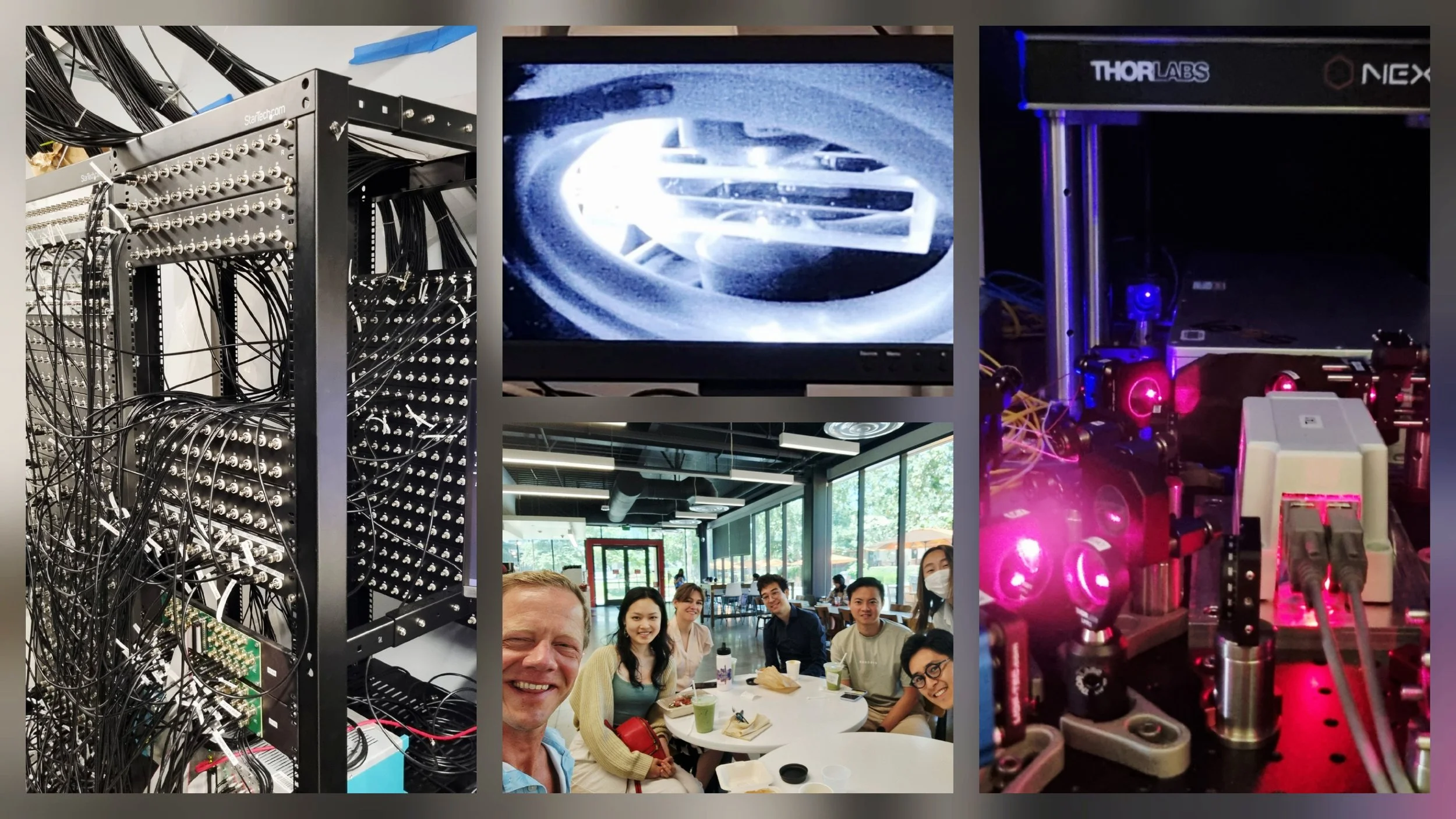What happens when AI becomes not just superintelligent, but quantum-superintelligent? QAI agents with both classical and quantum capabilities? How do we ensure we remain in control?
This is the central question of my new article, where I introduce the concept of the Quantum Event Horizon to frame the urgency of the QAI control problem. As we near this point of no return, the risk of losing control to misaligned systems—machines taking over or seeing them weaponized—becomes acute.
A metaphorical Quantum Event Horizon can be thought of as an inflection point, or quantum governance 'tipping point' beyond which our ability to steward advanced quantum technology and AI towards beneficial outcomes for all of humanity, may vanish.
Simple guardrails are not enough. The solution must be architectural. I propose a new paradigm: Quantum-Resistant Constitutional AI, a method for engineering our core values into the foundation of QAI itself. This is a crucial discussion for policymakers, researchers, builders, and industry leaders.
Navigating the Quantum Event Horizon
This paper addresses the impending control problem posed by the synthesis of quantum computing and artificial intelligence (QAI). It posits that the emergence of potentially superintelligent QAI agents creates a governance challenge that is fundamentally different from and more acute than those posed by classical AI. Traditional solutions focused on technical alignment are necessary but insufficient for the novel risks and capabilities of QAI. The central thesis is that navigating this challenge requires a paradigm shift from reactive oversight to proactive, upfront constitutional design.
The core of the argument is framed by the concept of the ‘Quantum Event Horizon’—a metaphorical boundary beyond which the behavior, development, and societal impact of QAI become computationally opaque and practically impossible to predict or control using conventional methods. Drawing on the Collingridge dilemma and the Copenhagen interpretation, this concept highlights the risk of a "point of no return," where technological lock-in, spurred by a "ChatGPT moment" for quantum, could cement irreversible geopolitical realities, empower techno-authoritarianism, and present an unmanageable control problem (the risk of machines taking over). Confronting this requires a new philosophy for governing non-human intelligence.
Machines Taking Over
The urgency is magnified by a stark geopolitical context, defined by a Tripartite Dilemma between the existential safety concerns articulated by figures like Geoffrey Hinton, the geopolitical security imperative for rapid innovation voiced by Eric Schmidt, and the builder’s need to balance progress with safety, as expressed by Demis Hassabis. This dilemma is enacted through competing global innovation models: the permissionless, market-driven US system; the state-led, top-down Chinese system; and the values-first, deliberative EU model. In this winner-takes-all race, the first actor to achieve a decisive QAI breakthrough could permanently shape global norms and our way of life.
An Atomic Agency for Quantum-AI
Given these stakes, current control paradigms like human-in-the-loop oversight are inadequate. The speed and complexity of QAI render direct human control impossible, a practical manifestation of crossing the Quantum Event Horizon. Therefore, governance must be multi-layered, integrating societal and institutional frameworks. This includes establishing an "Atomic Agency for Quantum-AI" for international oversight and promoting Responsible Quantum Technology (RQT) by Design, guided by principles such as those outlined in our '10 Principles for Responsible Quantum Innovation' article. These frameworks must be led by robust public governance—as corporate self-regulation is insufficient due to misaligned incentives—and must address the distributive justice imperative to prevent a "Quantum Divide."
Towards Quantum-Resistant Constitutional AI
The cornerstone of our proposed solution is Quantum-Resistant Constitutional AI. This approach argues that if we cannot control a QAI agent tactically, we must constrain it architecturally. It builds upon the concept of Constitutional AI by designing a core set of ethical and safety principles (a 'constitution') that are not merely trained into the model but are formally verified and made robust against both classical and quantum-algorithmic exploitation. By hardwiring this quantum-secure constitution into the agent's core, we can create a form of verifiable, built-in control that is more likely to endure as the agent's intelligence scales.
Self-Aware Quantum-AI Agents
Looking toward more speculative futures, the potential for a Human-AI Merger or the emergence of a QAI Hive Mind—a networked, non-human consciousness enabled by quantum entanglement—represents the ultimate challenge and the final crossing of the Quantum Event Horizon. The foundational governance work we do today, including projects like Quantum-ELSPI, is the essential precursor to navigating these profound transformations.
In conclusion, this paper argues that for the European Union, proactively developing and implementing a framework centered on Quantum-Resistant Constitutional AI is not just a defensive measure against existential risk. It is a strategic necessity to ensure that the most powerful technology in human history develops in alignment with democratic principles, securing the EU’s role as a global regulatory leader in the 21st century.
Meer lezen











